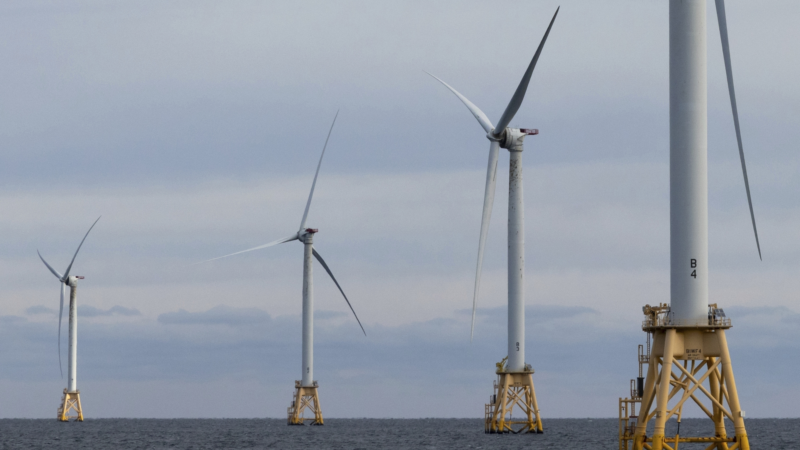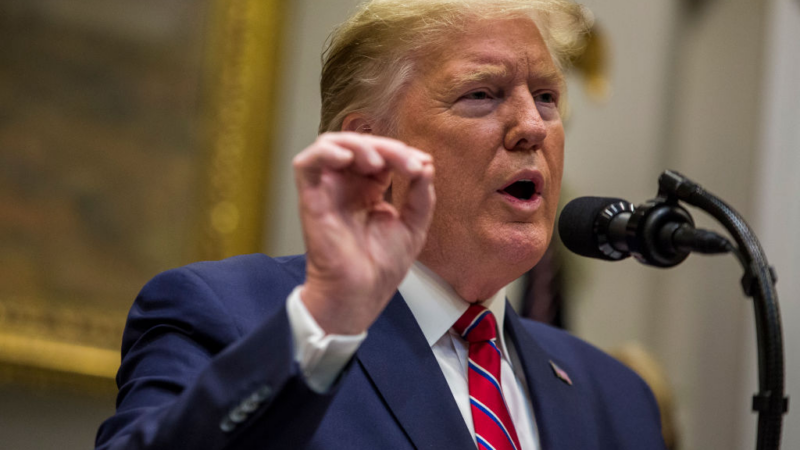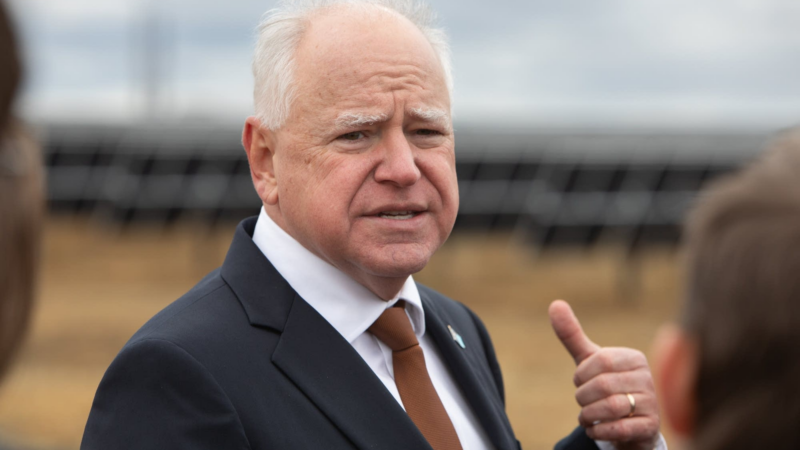Biden set an ambitious new climate goal. Will it still matter under Trump?
The United States has announced a new, more ambitious goal extending into the next decade for reducing the greenhouse gases that are driving climate change.
In the language of climate diplomacy, these new goals are called “Nationally Determined Contributions” – or NDCs. These commitments from countries aim toward the main goal of the 2015 Paris climate agreement: to limit global heating to 1.5 degrees Celsius (2.7 degrees Fahrenheit) above pre-industrial levels. Scientists say that’s needed to avoid some of the worst-case scenarios that come with a hotter climate.
The U.S. committed to zeroing out its greenhouse gas emissions by 2050. President Biden set an interim NDC at the start of his term of 50 – 52% by 2030, based on the country’s 2005 greenhouse gas emission levels. Now Biden is boosting that to 61 – 66% by 2035.
“I’m proud that my Administration is carrying out the boldest climate agenda in American history,” Biden said in a White House video accompanying the announcement. The President continued to frame his administration’s climate objectives as economic opportunity for the nation, highlighting jobs created by building offshore wind energy projects and by incentives in his climate-focused Inflation Reduction Act.
But President-elect Trump plans to reverse the country’s transition to renewable energy and reinvigorate climate-heating fossil fuel production, even though federal data from the Energy Information Administration show that the country already “produces more crude oil than any country, ever.”
Trump transition team spokeswoman Karoline Leavitt didn’t address the question of NDCs directly, but in an email to NPR said, “In his second term, President Trump will once again deliver clean air and water for American families while Making America Wealthy Again.”
Biden administration officials sounded optimistic that their new 2035 goal could still be achieved through efforts by states, cities and private companies.
“Subnational leaders in the United States can continue to show the world that American climate leadership is determined by so much more than whoever sits in the Oval Office,” said John Podesta, senior advisor to the President for international climate policy.
The Biden administration argues that programs it developed won’t go away just because there’s a new president with different policies. For example, renewable energy projects built during Biden’s time in office will continue to operate.
“The U.S. is adding more capacity to its grid than it has in decades. 96% of that electricity will be clean,” said Ali Zaidi, White House national climate advisor. “Across the country we see decarbonization efforts to reduce our emissions, in many ways, achieving escape velocity,” he said, meaning Trump can’t reverse all the Biden administration has done to address climate change.
The U.S. Climate Alliance, which includes 24 mostly Democratic governors, praised the White House announcement. “The country’s climate-leading governors will carry the torch forward,” said Gov. Kathy Hochul of New York. “This new collective goal will serve as our North Star, guiding us in the years to come and keeping America on track toward a cleaner, safer future.”
But losing federal leadership on climate policies has consequences. A University of Maryland report concluded that if key elements of Biden’s climate agenda, such as the Inflation Reduction Act or recent EPA regulations, are overturned or rolled back, then emissions likely would be reduced only 48% by 2035. That’s 13 – 18% short of the newly announced goal.
Think you can’t dance? Get up and try these tips in our comic. We dare you!
Anyone can dance. As you read this comic, follow each step — and you'll be moving and grooving in no time.
Employers lobby to keep health care prices transparent in hopes of containing costs
Donald Trump's first administration advanced rules forcing hospitals and insurers to reveal prices for medical services. Employers don't want to risk backtracking during Trump's second administration.
After losing VP bid, Walz searches for role in pushing back against Trump
Minnesota Gov. Tim Walz saw his national profile skyrocket when he became Vice President Harris' running mate. Now, he's back home figuring out when he will push back or work with Republicans.
‘They don’t live where we live’: How communities hear each other in a divided country
NPR spoke with 30 small groups of people around the country about what they'd want other people to understand about their community — and what they want to understand about others
Pedro Almodóvar meditates on death in first English feature ‘The Room Next Door’
Pedro Almodóvar's first English-language film, The Room Next Door, is a meditation on death. Writing and making movies "is a way of running away from death," the Spanish director says.
Calling all students! NPR’s Student Podcast Challenge returns for 2025
For it's seventh year, our national podcasting competition will invite students from around the country, in grades four through 12, to bring us their best audio stories.




